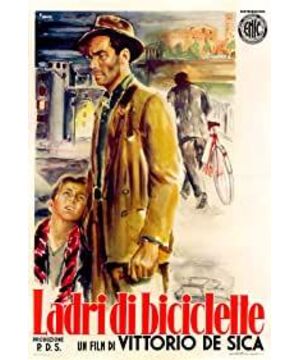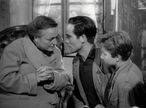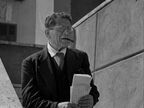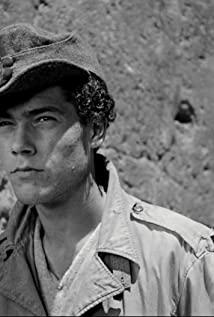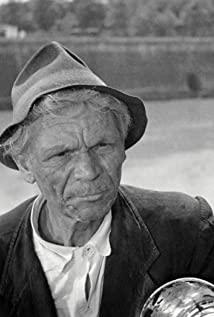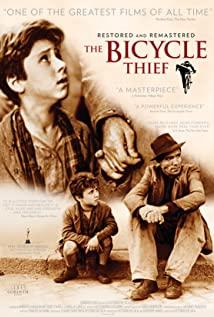The more you watch, the more you will find: a lot of movies are telling stories about finding. Some are looking for people, such as revenge films, family search films; some are looking for truth, such as detective films, reasoning films, suspense films; some are looking for directions, such as road films, time-travel films; some are looking for meaning, such as biopics, Growth films, inspirational films... In this way, when classifying films in the future, you can add a topic or label called "searching". The psychology of audiences who like to watch such films is very simple: if something is lost, the first reaction is to find it, and the process of finding it must be exhausting and anxious; in addition, if someone gives you an interesting question, of course you want to Find out. Movie creators also like to shoot stories of search or build a structure similar to search to tell stories, and their psychology is also very simple: give you a riddle, and finally reveal the answer; want to know the answer? Go down the process first and listen to me making up a story for you step by step. The most straightforward is to let you accompany the protagonist to find things. For example, this "Bicycle Thief" is a story about a man leading his son to find a bicycle. The Italian black-and-white film of 1948 is hailed as a monumental work of the inaugural period of Neorealism. I don't know the difference between the new and the old in realism, all I know is that when I learned that the leading role in the film was a non-professional actor, I exclaimed: How awesome is this director! Especially the role of the father, you can't see the traces of amateur performances that are both forceful and deliberate to let you play at any time. Without knowing the background, I thought it was an old actor; And the image of the bottom middle-aged father who was bent over by the times. The role of the son is also good. He is seven or eight years old. He is cute, innocent and sensible. He laughs when he should laugh, and tears come out when he should cry. The fly in the ointment is that he feels too healthy and does not look like he is poor for a long time. time family kids. What I understand is that two natural actors, one big and one small, meet a talented director. The director's genius is not only shown in teaching actors to act, he also shows us the living conditions of the Italian underclassmen after World War II. Undoubtedly, realist themes, whether old or new, are inherently capable of recording history. For example, this film can let us understand that in Rome in the late 1940s, a bicycle may be all the belongings of the bottom citizens. It means the bankruptcy of the family and the shatter of hope. Whether the lost bicycle can be found or not has become a matter of life and happiness for the family. At the very beginning of the film, this matter was transformed into the knowledge in our minds, so after the bicycle was lost, we unconsciously followed the father and son, on the way to find them. With no turning back, with anxiety, with regret, with regret, with fatigue, with expectations, with despair. When the opportunity flashes, we will be slow to respond to the father and hate the iron; when the hope slips away, the father's slap in the face of his son's anger, we feel as if it hit our hearts (as a father, it is a bit embarrassing to see this paragraph); What followed was a "big meal" with all his compensation. What we saw was the father's apology to his son and the final declaration of dignity of the downcast; will we ask the so-called sensible people for guidance when we are desperate? What can we do when the thieves are locked down but they are besieged by the crowd due to lack of witnesses and evidence? At the end of the day, when the protagonist finally takes the step that we don't want to see and have a hunch that it's going to happen, that's how we feel. . . ? forget it. I'm done here. In short, it's hard, and it's hard because we've been sharing the same fate with this father and son, and we've been paying our deepest care, compassion and sympathy for them. Enduring. Because real. The truth lies in logic. Seventy years ago, in a foreign country, it was not too long ago. The logic of things has always been the same. The real poverty, the suffering caused by poverty, the pain caused by suffering, and the memory caused by pain are hard to forget. Besides, we are not far from the past. It is closer to the truth, so this work of others can be immortal. Some commented that this is a work by Vittorio Desica, a director with a left-wing background, who pays attention to the suffering of the proletariat. I believe that the truth that has been tempered by the changes of time and space is the first door for filmmakers to enter the ranks of greatness. Untimely, I remembered the last article I was confused about "Spring in a Small Town". How could the film released in the same year be clear, natural and reasonable and shocking? Why do we have to interpret it in the name of implicit and restrained cultural heritage? Wouldn't it be better to be direct? We have been breathing and sharing the same fate with this father and son, and we have been paying them our deepest care, compassion and sympathy. Enduring. Because real. The truth lies in logic. Seventy years ago, in a foreign country, it was not too long ago. The logic of things has always been the same. The real poverty, the suffering caused by poverty, the pain caused by suffering, and the memory caused by pain are hard to forget. Besides, we are not far from the past. It is closer to the truth, so this work of others can be immortal. Some commented that this is a work by Vittorio Desica, a director with a left-wing background, who pays attention to the suffering of the proletariat. I believe that the truth that has been tempered by the changes of time and space is the first door for filmmakers to enter the ranks of greatness. Untimely, I remembered the last article I was confused about "Spring in a Small Town". How could the film released in the same year be clear, natural and reasonable and shocking? Why do we have to interpret it in the name of implicit and restrained cultural heritage? Wouldn't it be better to be direct? We have been breathing and sharing the same fate with this father and son, and we have been paying them our deepest care, compassion and sympathy. Enduring. Because real. The truth lies in logic. Seventy years ago, in a foreign country, it was not too long ago. The logic of things has always been the same. The real poverty, the suffering caused by poverty, the pain caused by suffering, and the memory caused by pain are hard to forget. Besides, we are not far from the past. It is closer to the truth, so this work of others can be immortal. Some commented that this is a work by Vittorio Desica, a director with a left-wing background, who pays attention to the suffering of the proletariat. I believe that the truth that has been tempered by the changes of time and space is the first door for filmmakers to enter the ranks of greatness. Untimely, I remembered the last article I was confused about "Spring in a Small Town". How could the film released in the same year be clear, natural and reasonable and shocking? Why do we have to interpret it in the name of implicit and restrained cultural heritage? Wouldn't it be better to be direct?
View more about Bicycle Thieves reviews


